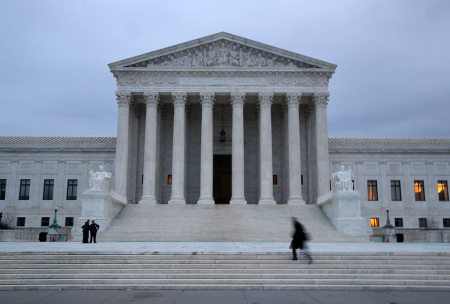Babylon Bee asks Supreme Court to uphold state laws banning social media censorship

Popular Christian satire site The Babylon Bee has asked the United States Supreme Court to rule in favor of two state laws that seek to punish social media platforms that engage in censorship.
In an amicus brief filed last week, Babylon Bee and its straight news partner website Not the Bee argued that recently passed laws in Florida and Texas aimed at combating social media censorship of users over political views should be upheld.
The two sites argued that major social media platforms like Facebook and YouTube “assert the unlimited and unilateral right to censor, deplatform, or shadow-ban disfavored users, disfavored content, and disfavored viewpoints.”
“Social media platforms have repeatedly engaged in ideologically driven censorship of individuals and organizations, including Amici,” continued the brief.
“They have targeted conservative users and religious messages for censorship, selectively invoking vague policies against ‘hate’ and ‘misinformation’ to stunt the free flow of information and silence conservative voices.”
The brief further argues that the laws passed in Texas and Florida “merely require social media titans to honor the representations they make to the public whose communications they carry.”
“Finally, these laws advance core First Amendment values by promoting the free exchange of ideas and by protecting religious viewpoints, among others, from censorship. And they restore trust and consumer confidence in social media. The Court should uphold both laws,” the sites added.
The Babylon Bee and Not the Bee are represented by the First Liberty Institute, a law firm that has successfully argued First Amendment cases before the Supreme Court.
“Censorship is no laughing matter. For too long, social media giants have censored conservative and religious speech with which they disagree,” said FLI Senior Counsel Jeremy Dys in a statement released last week.
“These laws are basic consumer-protection regulations that simply hold social media platforms accountable to the image of neutrality that they project, and they are consistent with federal law and the First Amendment.”
Last September, the Supreme Court announced that it would hear oral arguments in the cases of NetChoice v. Moody and NetChoice v. Paxton, which center on whether Texas and Florida can pass laws barring social media platforms from censoring conservative viewpoints.
Regarding Florida, the litigation pertains to Senate Bill 7072, which was signed into law by Gov. Ron DeSantis in 2021 and allows social media users to sue platforms they believe wrongfully censored them.
A district court issued an injunction blocking the law, while a three-judge panel of the U.S. Court of Appeals for the 11th Circuit upheld much of the block in a ruling released in May 2022.
"We hold that it is substantially likely that social-media companies — even the biggest ones — are 'private actors' whose rights the First Amendment protects," read the unanimous panel opinion.
"We further conclude that it is substantially likely that one of the law's particularly onerous disclosure provisions — which would require covered platforms to provide a 'thorough rationale' for each and every content-moderation decision they make — violates the First Amendment."
Regarding Texas, the litigation pertains to House Bill 20, which was signed into law by Gov. Greg Abbott in September 2021 and bars social media platforms with over 50 million monthly users from censoring political content.
Although a district court found HB 20 unconstitutional, a three-judge panel of the U.S. Court of Appeals for the 5th Circuit upheld the law in September 2022, concluding that the social media sites’ argument could be used to justify a wide range of censorship.
"On the platforms' view, email providers, mobile phone companies, and banks could cancel the accounts of anyone who sends an email, makes a phone call, or spends money in support of a disfavored political party, candidate, or business," read the panel opinion.
In the past, the Babylon Bee has been the victim of censorship from both Facebook and Twitter on multiple occasions because some of its posts poke fun at progressive causes.





















